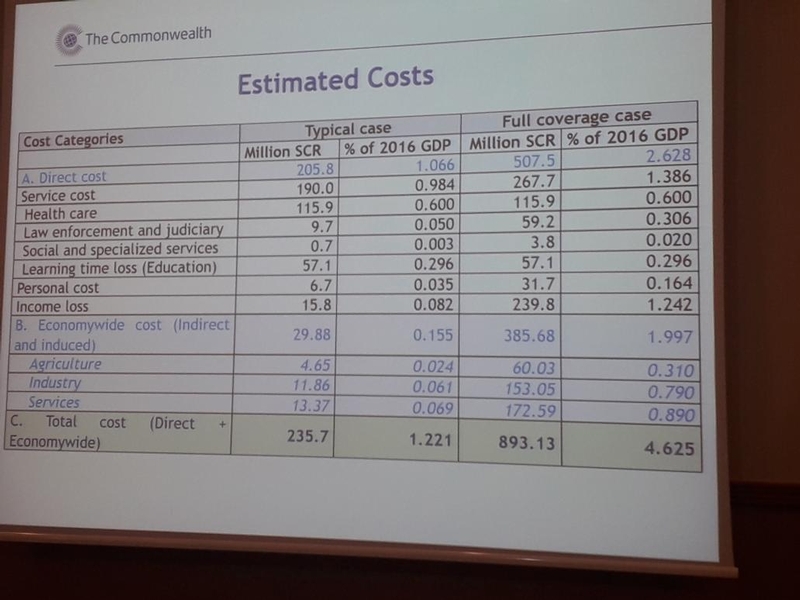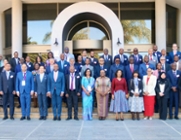Counting the cost of violence

02 July 2018
As well as being morally reprehensible, violence against women and girls (VAWG) has a serious financial cost that we must all bear, according to an innovative project by the Commonwealth Secretariat and the Government of Seychelles.
At an event organised by the Commonwealth Secretariat in London this week, Dr Bazlul Khondker presented the methodology and discussed the findings from the pilot in the Seychelles. One of the biggest challenges to this project is the number of violent crimes against women that go unreported but, using existing data, the project measured a number of costs including:
- health care - physical and psychological - visits to medics, stays in hospital, surgical costs, even the costs of getting to and from hospital or doctors’ surgeries;
- involvement of the police and the judiciary if the incident proceeds to court; and
- time away from paid work, and interruptions to domestic responsibilities in the home.
The study also looked at how violence against women and girls impacted on particular industries including agriculture and the service industry.
Small island and developing states (SIDs) are vulnerable to a number of issues, like climate change, and face much uncertainty. With clear evidence of the impact of VAWG on the national economy, addressing this issue is an obvious way to boost a country’s resilience. The Seychelles found that 1.2% of GDP is lost annually to VAWG. Globally the figure is 11% of GDP: 5.26% to violence against women and 4.25% to child abuse and sexual crime.
Increased investment to address VAWG
The project’s main output is to provide governments with an enhanced understanding of the actual costs of VAWG and raise awareness of the scale of the problem; and in turn, it is hoped that this will lead to an increase in the investment to address VAWG. The project will also support policy-making in designing multi-sectoral responses to VAWG, including policy reforms and creating new gender sensitive policies, identifying necessary resources, capacity building and developing frameworks.
The project was presented to the Government of the Seychelles last week in the presence of the Secretary General Rt Hon Patricia Scotland QC, with a number of ministries and MPs in attendance.
Eliminating violence yields returns
“This was a real eye opener for the Ministry in the Seychelles as they didn’t realise the costs. Of particular interest was the high rate of return on investment because, for every £1 spent on eliminating violence against women and girls, the return is estimated to be between £5 and £20”, according to Amelia Kinahoi Siamomua, the Commonwealth Secretariat’s Head of Gender, who also stressed the importance of working with legislators from day one.
She continued: “This project does not provide a solution, but it can help with assessment. It has raised the question of whether, at the national level, we should be investing in the economy or in social dynamics.”
The project can be replicated in other countries and the remaining funding will be used for two new pilots in Trinidad and Tobago, and Lesotho. The Seychelles will also use the framework every two years to monitor any changes.
The project’s findings will be fed into CHOGM via a report-back in two years’ time at Rwanda2020.
Back to News





